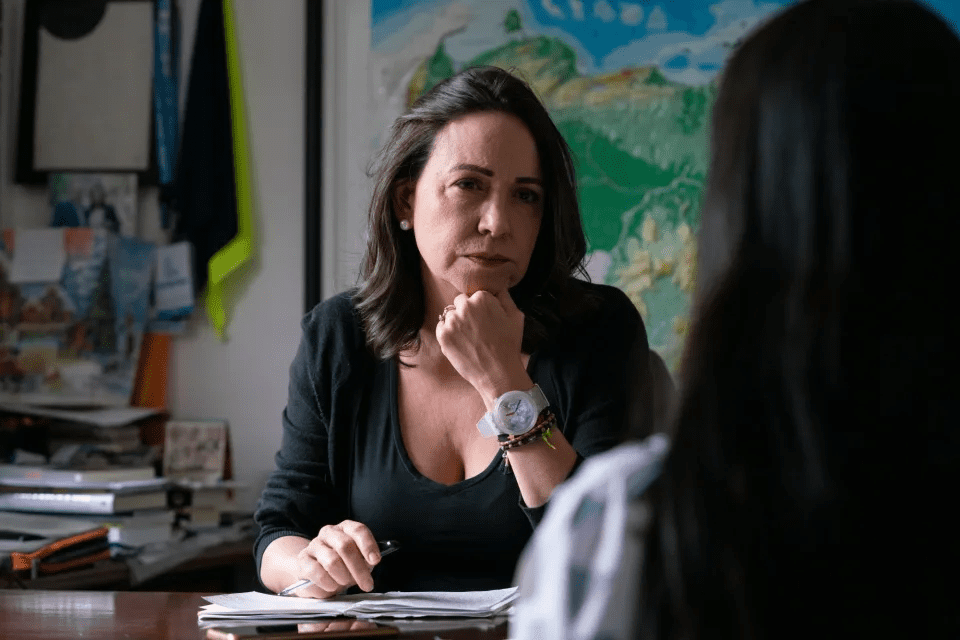María Corina Machado, the presidential candidate of Venezuela’s main opposition coalition, has urged the government to adhere to the process at the International Court of Justice (ICJ) to resolve the Essequibo territorial controversy with Guyana. Speaking to publication EFE, Machado said Venezuela should hire the best defense to “win” the case, a stance contrary to the Maduro regime’s rejection of the ICJ’s involvement.
“The controversy is being resolved at the level of the ICJ, regardless of whether we like it or not, that is where it is and Venezuela has already acted, therefore, it cannot ignore it. The court is going to issue a verdict that is mandatory for us to comply with,” Machado stated, according to an unofficial English translation.
Meanwhile, a spokesperson for the UN Secretary General, Antonio Guterres, said Friday that Guyana and Venezuela should show good faith and not aggravate an extension of the controversy. The spokesperson also reminded that the Secretary General chose, by the powers conferred on him by the 1966 Geneva Agreement, the ICJ as the means to settle the controversy. Shortly after, Venezuela said it rejected his statement. Maduro continues to argue, despite Venezuela’s participation in the proceedings, that the country never consented to the court being the mechanism to resolve the matter.
Machado believes Venezuela can win at the ICJ. “We have time, until April, to present the counter-memorial, we have the arguments, history supports us,” she added. She expressed concern about the risk of Venezuela “losing” this territory if it does not play its cards right.
The ICJ has scheduled hearings on November 14-15 in response to a request from Guyana for it to issue provisional measures against the controversial referendum. Venezuela is scheduled to present its oral argument on the second day.
Machado has criticized the December 3 referendum proposed by the government, which seeks public opinion on annexing Guyana’s Essequibo territory. She believes the referendum is non-binding, and would weaken Venezuela’s position under international law. “Sovereignty is exercised, not consulted,” she said – another unofficial translation.
Machado is an overwhelming favorite among opposition candidates, but her quest for the presidency has been challenging, with Venezuela’s controller general, Elvis Amoroso banning her from public office in June due to her support for US sanctions against Maduro’s regime, Reuters reported. Despite the ban, Machado continued her campaign and won the opposition primaries in October. However, Venezuela’s top court suspended the primary results and ratified bans on her and other opposition candidates, after Venezuela’s attorney general Tarek William Saab said his office was investigating the primary and members of its organizing commission for electoral violations, financial crimes and conspiracy.
The position of the US, according to Reuters, is that bans on Maduro’s opposing candidates must be lifted by the end of November, or it would reinstate sanctions against Venezuela.



